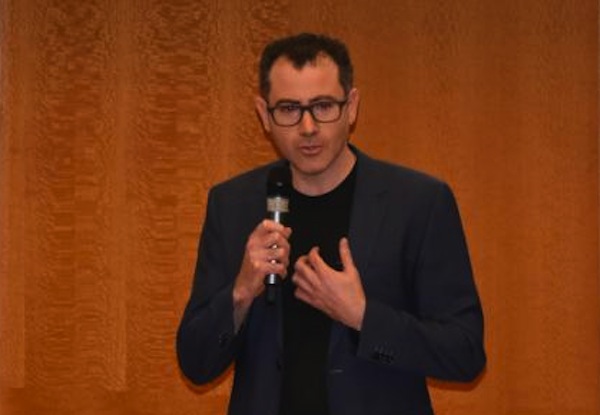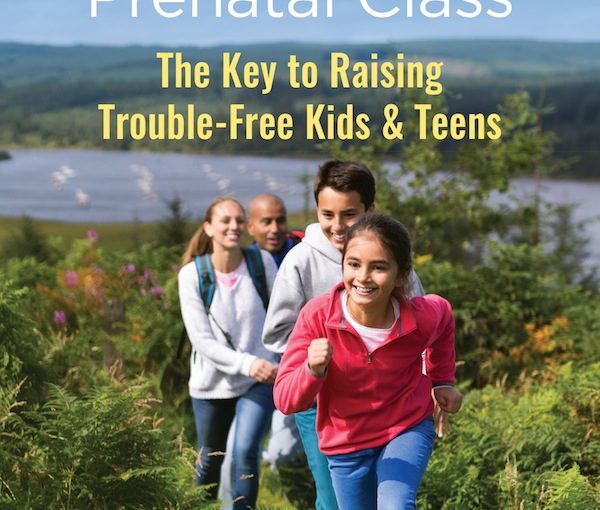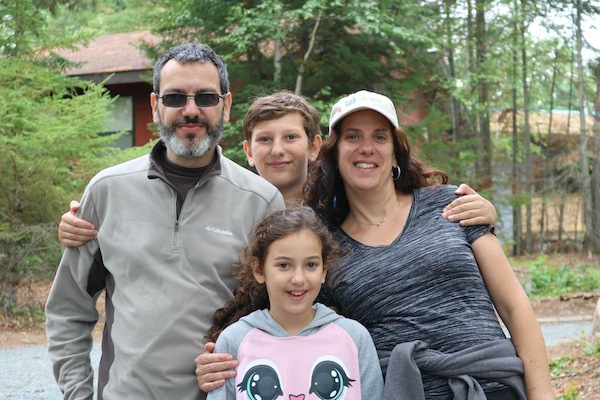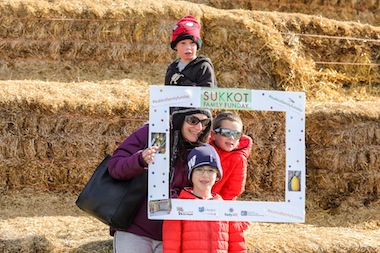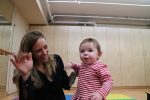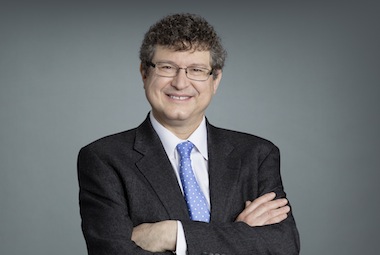The most important thing as a parent
is to be able to identify when your child is stressed. (photo from
Psychology Foundation of Manitoba)
Despite the numerous technological advances we
have achieved to make our lives easier, we are more stressed than ever. Even
children are affected.
American psychologist Dr. Robin Alter moved to
Toronto in 1980 to work at the city’s mental health centres. Her focus is on
children’s health and, over her 36-year career, she has helped treat more than
10,000 families.
“If you’re just in private practice, you don’t
get to do that…. You can’t see that many people,” Alter told the Independent.
“So, I started thinking that I really need to start writing down what I’ve
learned from this incredible experience and try to give it back.
“A lot of the things I was learning on the
ground, in those face-to-face meetings, were things I couldn’t read about. It
was not written in the studies I was reading. My experience, and what works for
people or doesn’t, is different than what was written in books or journals.”
In addition to numerous articles, many of which can be found on her website (docrobin.com), Alter is the author of the book Anxiety and the Gift of Imagination and The Anxiety Workbook for Kids.
When she was in university, Alter’s teacher,
Judy Levy, helped steer her toward working with children.
“I loved talking with them and finding ways
they could express themselves so we could understand what they were feeling and
why they were behaving the way they were,” said Alter. “Then, I came to Canada.
I walked into these children’s mental health centres and looked around and I
found all these people who shared the same mission as me…. I was ecstatic,
realizing that I’m not doing this by myself. I’m doing this with an army of
people who are passionate, who are inspired to dedicate their lives and energy
to helping children and families.”
When the system switched to providing such care
in a hospital setting, Alter opted to work from the outside, to educate people
about how changes in society are affecting kids.
According to Alter, the effects of stress start
at infancy for many kids, as they are thrust into a daycare environment for
eight to 10 hours a day.
“That’s very hard for kids if you think about
it,” she said. “When you’re with your family, you can let your hair down,
right? You can be yourself, be relaxed. You’re protected, cared for, special.
When you’re in a large group of other kids – even if it’s a good place – they
have a number of kids to look after … there is always stress involved, some
kids who want the toy you want to play with.
“You don’t have the skills yet to figure out a
compromise, so you’re just fighting over the toy or feeling left out. Everybody
seems to be playing with somebody and you don’t have anybody to play with. And,
you know, there’s not always going to be an adult who notices that you’re under
stress.
“The children leave their home early in the
morning, spend all day in a competitive environment, and [are] picked up at the
end of the day just to have dinner, a bath and go to bed…. Going to bed, too,
is stress-inducing for all of us, but especially for kids. And we wonder why
they are having trouble keeping up.
“I think there’s an epidemic of sleep deprivation,”
she added. “Kids really don’t know how to unwind at night, how to take their
worries and put them aside. I know most parents have a fairly good bedtime
routine, where they read to their kids and turn out the lights, but I think it
can be improved. Kids need to learn how to turn off their minds and put the day
to rest.”
Alter has conducted nearly 6,000 psychological
assessments and continues to do more. For this, there is a form that parents
fill out – in 90% of these assessments, parents identify problems with sleep.
According to Alter, Vancouver’s Dr. Gabor Maté,
an expert on child development, believes that many kids who are identified as
ADHD (attention deficit hyperactivity disorder) are really just sleep deprived
and misdiagnosed. And, if they get diagnosed as having ADHD, they will likely
get medication – medication that causes sleep deprivation, further intensifying
the problem.
The most important thing as a parent, said
Alter, is to be able to identify when your child is stressed. The key to doing
this is paying attention mainly to what is not being said. “Look for the cues,”
she said. “Kids have a different response, but, usually, it’s a change in
behaviour. They stop and, sometimes, their eyes get wider. We can do things to
alleviate that stress, explain things to them. For example, the other night, at
dinner, I drank a little bit of water, and then I was talking to Lewis [her
2-year-old grandson] and he turned to me and said, ‘Baba, you just spit at me!’
“He looked horrified at that. Why would his
grandmother spit at him? Something he’s learned in daycare is that you don’t
spit. He looked like I had just done this horrible thing. We explained to him
that I didn’t spit at him, that it was water that came off my lips and that I’d
never spit at him. Then he became unstressed.
“So, sometimes, just explaining what’s going
on; giving the kid a good explanation can alleviate the stress. Those are
minimal stresses. But, sometimes, there are big stressors going on.”
While stress can be overwhelming, it is important
to remember that we don’t want to completely eliminate it. “Stress is our
passport, or what we need to have an interesting life,” said Alter.
We have to learn that stress is a part of life
and that we need to learn ways to de-stress. This is a main focus of the
Psychology Foundation of Canada program Kids Have Stress Too, for kids 3 to 5
years old.
One of the strengths of the program is that it
relays that stress is normal, everybody gets stressed. “And, you know, you can
identify it in other kids,” said Alter. “When other kids are stressed, you can
identify it in yourself and you can help yourself to feel better…. You can
learn how to come back, bounce back from stress.
“I was at a session, my own personal
professional session with a mother. She was very stressed by her daughter, who
was 5 years old and had been diagnosed with epilepsy. The mother was very
stressed by the diagnosis and the symptoms. The kids were in the room.
“The 5-year-old heard her mother talking about
how stressed she was – and the kid had actually been through the Psychology
Foundation program Kids Have Stress Too. Her ears perked up at the word
‘stress’ and she said, ‘Mom, I know what to do when you get stressed.’ The
mother said, ‘You do?’ And the kid said, ‘You sing a song.’ She had a song she
learned in the program and she sang it to her mother, and it was very cute and
helpful, and the mother laughed. Laughter is a good way to alleviate stress.
“Another good way of helping kids alleviate
stress is to encourage them to be helpful to others. When we are kind to
others, when we reach out and give people food, and share – all those things
alleviate our stress.”
The Kids Have Stress Too program teaches
children to be aware of when they are stressed. Some kids feel nausea or a rush,
as if an alarm system is going off in their body. Some kids feel it in their
tummies. Others feel it in their heads. Once they learn what these feelings
mean, it normalizes it and then it is not so scary. So, they are able to take
care of themselves and sometimes take care of others.
“If you see other kids going through the
program, someone stressed, they sometimes put their arm around them and say,
‘It’s OK. Everything’s alright, so let’s go play, let’s go do something fun,’”
said Alter. “And that’s what it’s all about.
“There are wonderful little techniques,” she
said. “The one I like most is the cloud push. You stand up and put your hands
up and push the clouds away, like you’re pushing all the stress away. You’re
getting rid of all the things you don’t want. Push them into the sky. Let them
fly away.”
Alter shared a story about visiting a junior
kindergarten class, where she read the kids a book about animals having a bad
day and getting stressed. She was taken aback by the responses she got from the
4-year-olds when she asked them if they had ever had a bad day.
“I turned to them and said, ‘Well, the
orangutan is having a bad day. Have you ever felt that way?’ And, I look up to
see this whole sea of faces, all shaking their heads as hard as they can,
saying, ‘No. No. Never!’ And, I was shocked. I realized that, even at this age,
the peer pressure of how we’re not supposed to feel that way, not supposed to
admit to others that we feel bad, was already instilled so early.
“Then, they went to little tables
independently. We gave them crayons and paper, and each one of them drew these
amazing pictures of things in their life that stress them out. One kid drew a
picture of his mom having cancer and going to the hospital. Another kid drew a
picture of his father leaving the family. And, I realized that they got the
message, what I was reading about. They were not going to admit it in the
group, but they were very eager to talk about it individually.
“We need to help kids realize that they are not
alone with these problems or feelings,” said Alter. “That’s one of the biggest
strengths of the program – an adult can help kids, too, by talking about their
stresses.”
Parents need to be sharing their feelings with
their kids, and then showing them how we move past them, she said.
“Kids don’t so much listen to what we say as
much as what we do,” said Alter. “Kids are more doers. And so, for example,
getting them out to the yard and doing exercise – throwing a ball around or
something – is a good way to alleviate stress.
“Many kids stop talking because we use words
they don’t understand, and they just don’t understand what we’re talking about.
But, they understand action and behaviour. So, doing things with them and
encouraging them to do things is a lot more helpful. Also, laughing is a way to
alleviate stress. So, telling a joke, being silly, or just letting … stress out
that way is great.
“Kids need to know that when they are out there
in the ‘jungle’ of school that their parents are behind them and that they are
not alone in whatever is going on,” she said. “Our daughter had a lot of
trouble in grades 4 to 6 – bullying, mistreating stuff. Every night, we’d
strategize what she could do, have long conversations. None of them worked.
She’d say, ‘I tried that. It didn’t work.’ She knew that we were behind her,
that she wasn’t alone. She had a team who understood how difficult the
situation was. I think all those things help.”
For more information on the Kids Have Stress Too program and more, visit psychologyfoundation.org.
Rebeca Kuropatwa is a Winnipeg freelance writer.

